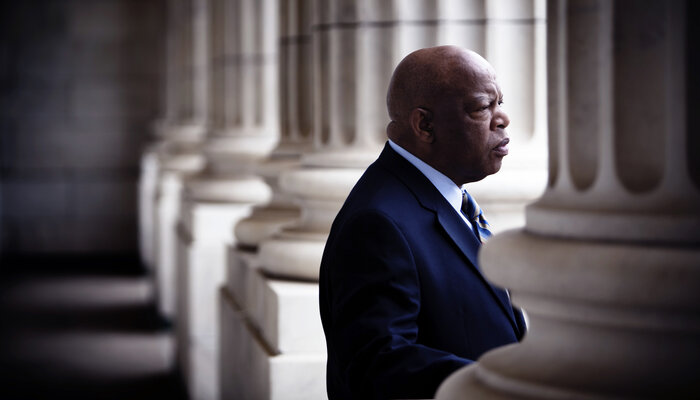
Esta página no está disponible en español
¿Le gustaría continuar en la página de inicio de Brennan Center en español?
al Brennan Center en inglés
al Brennan Center en español
Subscribe to Our Newsletter Close Stay up to dateEsta página no está disponible en español
¿Le gustaría continuar en la página de inicio de Brennan Center en español?
al Brennan Center en inglés
al Brennan Center en español
The John R. Lewis Voting Rights Advancement Act
The bill would modernize and revitalize the Voting Rights Act of 1965, strengthening legal protections against discriminatory voting policies and practices.
Last Updated: February 29, 2024 Published: September 19, 2023
The John R. Lewis Voting Rights Advancement Act (H.R. 14, S. 4) would modernize and revitalize the Voting Rights Act of 1965. The Supreme Court has hampered the law by gutting its preclearance provisions in Shelby County v. Holder (2013) and by making it harder to sue to stop discriminatory practices in Brnovich v. DNC (2021). The John Lewis Act would strengthen the law, moving us closer to ending discrimination in voting and guaranteeing equal access to the ballot.
Geographic coverage: The John Lewis Act creates a new framework to determine which states and localities will be subject to preclearance. Under the requirement, jurisdictions with a history of voting discrimination must get approval from the Department of Justice or a federal court in Washington, DC, before changing their voting laws or practices to ensure that the changes are not discriminatory. In Shelby County, the Supreme Court struck down the Voting Rights Act’s preclearance formula, saying it was outdated. The bill updates the formula to ensure that state and local coverage is based on recent evidence of discrimination.
Practice-based coverage: The John Lewis Act makes some types of voting changes subject to preclearance nationwide, if certain conditions are met, because those changes are so often discriminatory. The following practices would be covered:
Bailout: The Voting Rights Act currently allows jurisdictions to easily bail out, or be released from preclearance coverage, if they successfully file an action in federal court showing they meet certain conditions. The John Lewis Act adds an even faster process that does not require a lawsuit. States that have not engaged in discrimination for a specified period of time and have satisfied certain objective criteria would qualify for automatic bailout.
Section 2 of the Voting Rights Act allows voters to sue to block voting laws and practices that are intentionally discriminatory or will yield discriminatory results. The recent Brnovich decision makes it harder to win those lawsuits. The John Lewis Act would strengthen protections against discrimination and codify prior standards for Section 2 cases.
Vote dilution: A voter may bring a federal action for vote dilution when practices such as gerrymandered districts make it harder for candidates preferred by minority voters to win.
The John Lewis Act would codify the nine Senate Factors enumerated in the 1982 Senate report accompanying Voting Rights Act amendments, which were adopted by the Supreme Court in Thornburg v. Gingles (1986) and have long been used by federal courts to evaluate vote dilution cases. These factors include, e.g., the history of official discrimination, the extent of racially polarized voting, and the extent to which minority candidates have won elections in the jurisdiction.
Vote denial: A voter may bring a federal action for vote denial when restrictions result in minority voters having more difficulty casting a ballot than nonminority voters.
The John Lewis Act looks to whether a rule puts greater burdens in front of minority voters by applying the considerations drawn from the Senate Factors. Claims of “voter fraud” are not enough to justify a discriminatory rule. Instead, a state will have to provide evidence that fraud is occurring and that the law or practice will stop it. A voting rule that intends to benefit a political party still violates Section 2 if it also intends to cause vote dilution or vote denial for minority voters.
The John Lewis Act creates a new cause of action for voters to sue states or localities that implement a voting rule that is more discriminatory against minorities than the rule it replaces.